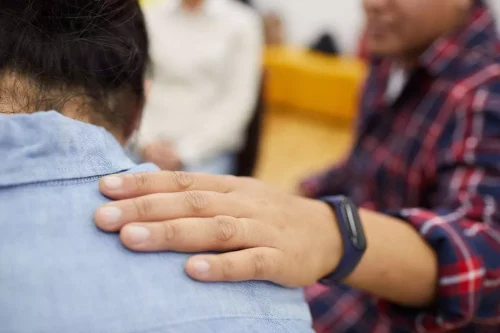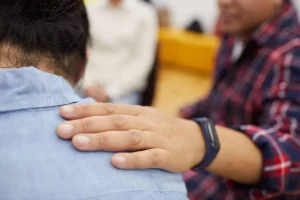
Sharing stories can help people bond with each other, work through personal lows and highs, destigmatize and help serve as inspiration for listeners. Whatever the goal, it’s still essential to understand concerns about oversharing or speaking about substance abuse in the wrong light. Keep reading for important dos and don’ts when sharing a personal recovery story.
The Emotional Connection and Attention-Grabbing Power of Personal Stories
You may even want to give your sobriety date when you very first begin telling your story, then recall it again when you get to it. Open by telling people how long you’ve been sober (something which will often be an inspiration in itself), and then consider the first stretch of your story as the lead-up to this moment. While no one can tell you exactly how to write your addiction story, honesty and vulnerability are some of the most fundamental keys to recovery that should be included. When you share your story, be honest about your experience with addiction and recovery. Don’t try to hide the difficult parts or make them sound more glamorous than they are.

Why we share our story of addiction recovery in a ‘general way’
Robin Cox is the Chief Financial Officer at Cumberland Heights, the Southeast’s premier alcohol and drug addiction treatment center. Daunting though it may be, it’s also important—and not least for those who are in recovery. In fact, if you’re in recovery yourself, sharing your story with others is one of the most important things you can do—stigma be damned.
Key Elements of an Effective Recovery Story
With this, stigma surrounding addiction and mental health can be broken down, and individuals can be encouraged and affirmed on their recovery journey. In conclusion, sharing your story in recovery storytelling plays a major role in addiction recovery by providing therapeutic benefits, and breaking down stigma. By sharing personal experiences, individuals can find healing and support, and also inspire others to seek help and believe in the possibility of recovery. Rehab centers, treatment programs, and beyond should use storytelling to promote healing and remove barriers to recovery. Storytelling is a great marketing tool for rehabs and treatment programs.

Recovery Stories and AA

He is a member of over a dozen professional medical associations and in his free time enjoys a number of different activities. Although now retired from racing, was a member of the International Motor Sports Association and Sports Car Club of America. Dr. Bishop is also a certified open water scuba diver, he enjoys fishing, traveling, and hunting. Brie graduated as a high school valedictorian with a major in Health Technologies and continued her studies at Springfield Technical Community College with a focus on healthcare. She served in Operations and HR for a finance company for ten years, before returning to healthcare and eventually arriving at USR.
- It allows them to develop realistic expectations of what they can expect in recovery.
- Find some tips for sharing the story in a way that honors you and your recovery community.
- But some of us have entered rehabilitation against our wills due to legal issues or family ultimatums, only to reach a point of acceptance after the fact.
- Others need to see that you are not perfect and that you have made mistakes.
- For example, if you share that you hit rock bottom when you lost your job, be honest about the fact that you were fired for showing up to work high and you didn’t quit your job.
And hopefully, one or two just may stay sober through the inspiration they have received from your honesty. When you reach this stage of your story, you may choose to discuss many things. If you feel that you have experienced such a thing, you may consider this moment to constitute the beginning of this section.

Lifestyle
Instead, it’s important just to start sharing and, eventually, you’ll get into a groove that works for you. It creates a bond which captivates attention and encourages understanding. These stories can challenge bad views on addiction and mental health, eliminating stigma. By openly discussing their experiences, people in recovery offer help, inspiration, and support.
Building Connections in Addiction Recovery Through Storytelling
No matter the cause of your substance use disorder, treatment and recovery are possible. Recovery from a substance use disorder can be difficult, but hearing stories from others who are in recovery can help. Our Treatment Advisors are available 24 hours a day to help you or a loved one access care.
- But if you feel that your story has ended and you are at a loss for words, it is time to leave the podium.
- For the storyteller, sharing their story affirms what they have gone through and holds them accountable for staying sober.
There may be times when you are simply not ready to talk about your story—and that’s okay! But when you are ready to share, do so—for everyone’s sake. Therefore, we suggest that you discuss this with your counsellor, healthcare provider or sponsor before taking the step of speaking openly about yourself in front of others.
- These stories inspire change by highlighting the challenges of recovery, showcasing the possibility of overcoming addiction and emphasizing the importance of seeking professional help.
- If you were to skim over these details, it could rob someone of the opportunity to see themselves in your story and realize that recovery is possible for them.
- They’ll help you identify whether it might be the right time and some things to consider before sharing details of your addiction.
- You’re in a room full of people who understand what you’re going through and have compassion.
- You know the pain and internal conflict that comes along with having an addiction.
Telling your story in addiction recovery can be a powerful tool for emotional healing. By sharing your personal experiences, struggles, and triumphs, you can foster emotional healing within yourself and provide support and encouragement to others in recovery. It allows individuals impacted by addiction to connect with others, breaking the stigma surrounding substance abuse and mental health. Sharing your story evokes emotions such as empathy, encouragement, and hope, which are essential for healing and building a common bond of support. Sharing personal recovery stories holds incredible power in the journey of addiction recovery.
